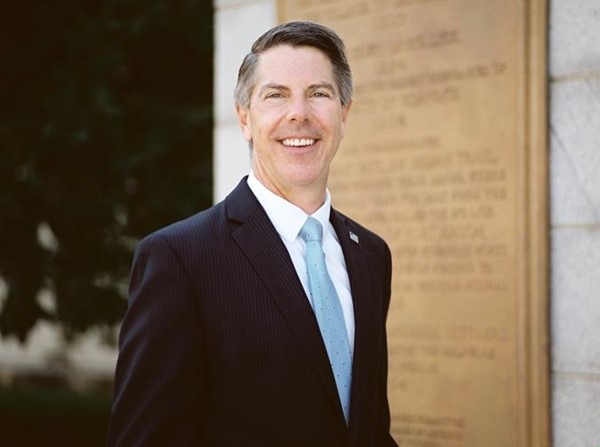At their core, many community science projects revolve around one critical question: What decisions can make life better in this community? It’s a tough question, made tougher by the increasingly complex economic, social and environmental issues many towns and cities are facing today.
It also happens to be one of the questions government finance officers ask themselves every day. Now, government finance officers across the U.S. are joining forces with Thriving Earth Exchange to improve access to scientific expertise in areas such as infrastructure planning, stormwater management and wildfire risk reduction. Through the partnership, the organizations aim to help communities make informed decisions about where to direct shared resources for the greatest good.
“How you allocate resources says something about your community,” explains Chris Morrill, GFOA Executive Director and CEO. “Finance officers play a key role in local government, but they don’t only have to deal with the numbers. You really can tap into science to make better decisions and better serve your community.”
GFOA was founded in 1906 and has 22,000 members working in public finance across the U.S. and Canada. To meet its mission – “to advance excellence in government finance to build thriving communities” – GFOA offers education and training on local finance issues like tax-exempt municipal bonds, fair regulatory enforcement and the responsible use of American Rescue Plan funds. It also shares best practices for engaging communities, understanding their needs and responding to feedback. Recently, GFOA members have participated in behavioral science training to improve decision-making processes, something Morrill says is increasingly important in our increasingly polarized political environment.
Thriving Earth Exchange sees the partnership with GFOA as a way to bring the power of science and technical expertise to government finance officers and public works officials across the U.S. “This partnership is especially powerful in its potential to enable community-based, co-created projects in underserved and marginalized communities with smaller budgets to design impactful and feasible outputs with little to no additional capital,” said Natasha Udu-gama, Community and International Relations Manager for Thriving Earth Exchange. “Thriving Earth is looking forward to connecting our community science fellows and community scientists to GFOA members interested in and willing to collaborate with science and scientists this year and in coming years.”
Morrill says the partnership will benefit GFOA because its members are so immersed in day-to-day issues that they may not have time to step back and see the bigger picture, something that is especially important for projects that are expected to last decades. He noted that many members work in smaller, under-resourced communities that lack access to the kind of scientific expertise that can help them address crumbling infrastructure or climate change issues. For example, building a new stormwater drainage system is a major investment requiring significant capital, but different designs and maintenance needs dramatically influence both lifetime costs and environmental impacts. By partnering with scientists, GFOA members can draw on data relevant to their specific community to select the best option to meet their needs.
As a first step, GFOA and Thriving Earth Exchange are working together to use case studies to broaden awareness of the organizations’ combined support network and amplify finance officers’ use of science-based decision-making. The case studies will come from a handful of pilot projects set to launch this summer. GFOA members will also have access to monthly webinars from Thriving Earth Exchange experts on topics such as how to partner with local universities.
“This partnership makes a lot of sense, because we both use data, analysis and research,” said Morrill. “But budgeting is more of an art than a science, and it should also be influenced by community voices so that it’s equitable, uses resources appropriately and engages the public to make sure that you have a thriving community.”

GFOA Executive Director and CEO Chris Morrill
